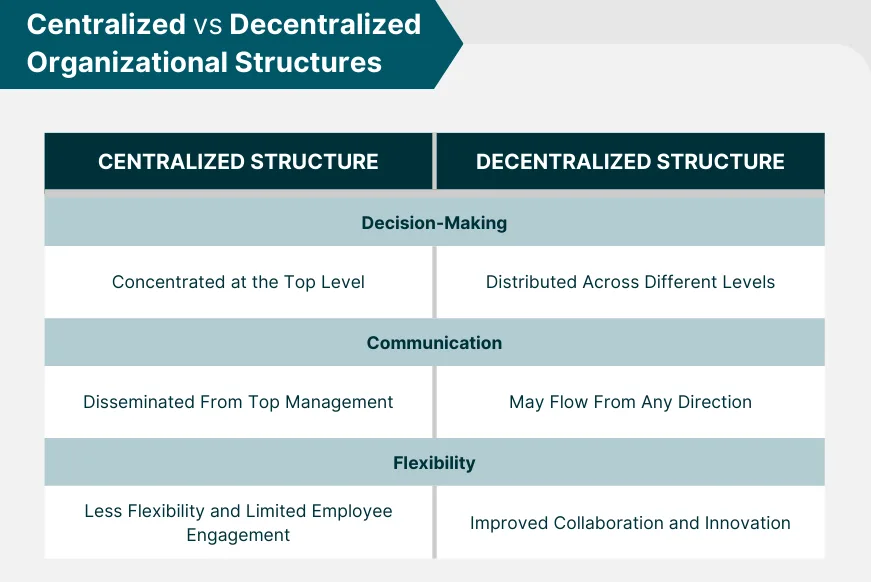In an ever-evolving professional landscape, one can’t help but constantly wonder what the future of work holds. However, that’s an intriguing realm that’s difficult to navigate. While there’s plenty of research being done on the topic, figuring out what’s coming in the future is partly like gazing into a crystal ball.
As technology keeps advancing, the days of monotonous cubicle work keep fading away. The changes seem to be happening faster as time goes on, and having a general idea of what’s coming can be beneficial for both employers and job seekers.
Fasten your seatbelts as we embark on a bumpy ride filled with educated guesswork. We’re going to explore what the future of work might look like, what some upcoming trends are, how one can prepare for inevitable changes, and much more.
Key Takeaways
The future of work is shaping up to be focused on technology, artificial intelligence, remote work, diversity and inclusion, and more.
The workforce, workplace, and ways we work are all going to change to become more adaptable, agile, result-oriented, and highly skill-focused.
In addition to remote work, AI, and inclusion, some trends that are changing the future of work include mental health awareness, eco-consciousness, redefined leadership and management, etc.
HR’s role in the future of work will likely be more data-oriented, agile, and focused on managing remote employees.
Companies that practice diversity and inclusion will likely see bigger and faster growth.
Some of the best future jobs include data analysis, cybersecurity, healthcare, software development, and robotics.
What Does the Future of Work Look Like?

Digitalization and automation are leading the transformation of the work landscape. Due to this, it’s difficult to pinpoint what the future of work is going to look like, but everything is pointing toward cutting-edge technologies.
Concepts like artificial intelligence, machine learning, and robotics are no longer distant buzzwords but integral parts of the modern workplace. Tasks that once took groups of humans considerable amounts of time are now effortlessly executed by algorithms.
Stay at home jobs used to be an occasional perk only for select individuals, but it’s now shaping up to be at the forefront of the business world. All that happens with the help of high-speed internet and cloud-based collaboration tools; the traditional office is slowly taking a backseat, with the hybrid work model projected to grow to 81% by 2024.
On top of all that, there has been plenty of progress in the fields of diversity and inclusion. Employers are realizing the potential of diverse perspectives and how they can boost creativity and problem-solving.
However, it’s worth noting that there are potential downsides to all this advancement and technological progress. For instance, automation may eliminate certain jobs. That means a part of the workforce will need to reskill or upskill to remain employable and relevant in the new world of work.
What Aspects of Work Will Change in the Future?
In the future, many aspects of work are going to change to some degree. While the rate of change and its intensity remain debatable, it’s evident that some of the biggest shifts are coming to the workforce, workplace, and ways of working.
The Workforce
There are several changes anticipated to happen in the future, both in the composition and characteristics of the workforce. One significant shift is going to be the increase in diversity. As the world becomes more connected, people of different ages, cultures, and backgrounds gain more opportunities.
Furthermore, the workforce is becoming more mobile and remote, and advancements in technology are facilitating this change. Plus, the acceptance rate of remote work is growing, and employers are starting to implement remote employee engagement strategies. This will likely lead to an increase in freelancers and independent contractors, giving companies flexibility in hiring.
On the flip side, the future of work will probably result in job growth for high-skilled individuals. As low-skill jobs become automated, people will have to upskill and practice continuous learning to maintain their employability.
The Workplace
One of the biggest changes coming to the workplace is the adoption of smart and flexible office spaces. The smart office market is predicted to almost triple in value between 2020 and 2030. Technology is being integrated into the physical work environment, and AI systems are used to enhance employee productivity and well-being.
Another aspect that’s likely going to change is the workplace hierarchy. The traditional structures are slowly being replaced by modern, flatter, and more agile models. Leadership and decision-making skills are becoming more decentralized so that there is no one individual at the top. This will eventually lead to a culture of trust, collaboration, and innovation.

Ways of Working
Digital communication and collaboration have already changed the ways we work compared to just a decade ago. The future of work will likely feature seamless remote teamwork in many industries, regardless of anyone’s physical location. After all, we saw a 1,230% increase in virtual meetings in 2020.
Another concept that’s slowly becoming obsolete is the 9-to-5 workday. It’s seen as too rigid, with flexible working hours and result-oriented views becoming more prevalent. Employers are shifting their focus to productivity over fixed schedules, which results in both increased job satisfaction and reduced burnout.
10+ Trends That Are Changing the Future of Work

An easy way to see in which direction the future of work is heading is to look at the trends. Let’s examine the current future of work trends, how they are occurring, and where they might take us down the road.
#1. Working Remotely
The trend of remote work has been gaining momentum for years, with job opportunities growing by 1,117% during the pandemic. While concepts like freelancers and digital nomads have existed for decades, more large companies with permanent employees are adopting this approach.
Advances in technology have made it possible for employers in many industries to work from anywhere. This trend helps companies as well, as they gain access to a globally diverse talent pool while simultaneously reducing the need for office spaces.
#2. Flexible and Hybrid Work
Flexible and hybrid work combines the elements of remote and in-office work to create a middle ground.
This trend aims to get the best of both worlds—on the one hand, it provides employers and employees with high degrees of flexibility. On the other hand, having the option to go to the office is excellent when it comes to maintaining face-to-face collaboration. Furthermore, it creates more team-building opportunities, which further boost teamwork and loyalty.
#3. Work-Life Balance
Work-life balance has often been overlooked in the past. The focus was on efficiency and productivity, which often led to burnout, decreased satisfaction, and high turnover rates. However, as the modern workplace evolves, people are recognizing the importance of maintaining harmony between professional careers and personal needs.
Prioritizing work-life balance benefits employers as well. A healthy and supportive work environment increases employees’ satisfaction and productivity. Younger generations entering the workforce are particularly focused on finding the right balance between work and personal life. As a result, businesses that can accommodate those needs are likely to attract top talent.
#4. Use of AI and Generative AI
The use of artificial intelligence is transforming a number of industries. The automation of routines and repetitive tasks is creating opportunities for humans to vastly increase their performance and efficiency. On the flip side, it’s making some jobs obsolete, thus requiring people to reskill and switch careers.
Generative AI has become increasingly popular recently. Writers, graphic designers, and other creative professionals are using these tools to modify and transform their work. However, AI-generated output still requires human judgment. In practice, some of these roles involve combining generative tools with other AI-based systems, such as an AI detector, as part of review and quality processes to ensure clarity and accuracy.
For many, generative AI has already become an integral part of their workflow.
#5. Increase in Social Collaboration
In the past, many workplace hierarchical structures offered limited space for open communication. That approach is changing, and the future of work is looking at a more social and collaborative environment. Businesses recognize that including more people in the creative and problem-solving processes leads to better outcomes.
Furthermore, with the rise of remote work, social collaboration becomes crucial for bridging the gaps between coworkers. Nowadays, teams can consist of people from different regions and time zones. As a result, they are taking advantage of technology to communicate and collaborate.
#6. Continuous Learning
Jobs are evolving rapidly, making the concept of continuous learning integral to the future of work. In fact, employees who want to stay relevant in the professional landscape need to stay up-to-date with the trends and best practices in their field.
Adaptability is a crucial soft skill that can help individuals prepare for change and learn unique skills. Many companies are already investing resources in educating their employees and supporting their growth, and this trend is likely to increase going forward.
#7. Mental Health Awareness
A survey conducted in 2021 found that 50% of respondents left their jobs for mental health reasons. That’s up from 34% in 2019. Companies are recognizing the importance of work-related stress and mental health issues and are taking steps to support their employees in that regard.
This trend involves everything from giving employees access to counseling services and stress management resources to creating mindfulness programs. Employees who feel supported in the workplace are less likely to underperform and display higher degrees of loyalty and job satisfaction.
#8. Focus on Employee Experience
One of the more prominent trends in the future of work is the increased focus on employee experience. This term refers to the overall feel, enjoyment, and interactions employees have with the company and organization throughout their tenure. That includes everything from their first recruitment process to even post-employment affairs.
Employee Experience Factors
There are many factors that contribute to the employee experience, including:
Employer engagement and employee well-being
An increase in workforce diversity
Company’s workforce culture and environment
Implementation of technology to facilitate pleasant work arrangements
Positive business performance
Company’s efforts in promoting employee growth and learning
#9. The Metaverse
The metaverse represents a digital space where physical and virtual realities merge. Its purpose is to be fully immersive while connecting individuals from different locations in real time. To highlight its significance in the future of work, it’s worth noting that Facebook is spending as much as $1 billion per month on its metaverse project.
Metaverse Possibilities
The metaverse offers plenty of possibilities, such as:
Remote collaboration
Virtual offices
Access to a global talent pool
Enhanced online networking
Virtual goods and services
Integration with augmented reality
#10. Eco-Conscious and Sustainable Work Practices
The growing awareness of environmental issues has made sustainable work practices one of the leading trends in the business world. Companies are focusing on reducing their ecological footprint and promoting eco-conscious behavior. This involves using energy-efficient technologies, creating recycling initiatives, designing sustainable practices, and more.
These sustainable practices can lead to cost savings in the long run while fostering a circular economy. Moreover, they can help companies attract top talent since younger generations are more sustainability-oriented.
#11. Redefining Leadership and Management
As workplace dynamics evolve and employee expectations change, it’s becoming necessary to redefine leadership and management styles. There’s already more emphasis on emotional intelligence in the workplace, as well as collaborative and synergic leadership.
Traditional top-down management styles are being replaced with flexible and agile approaches. As a result, decision-making processes are becoming increasingly data-driven and cooperative. Lastly, with the increase in remote jobs, leaders and managers will likely have to adapt to managing virtual teams.

How to Prepare for the Future of Work
It’s hard to predict the exact future of work, meaning it’s impossible to find a one-size-fits-all solution to prepare for it. However, there are some essential steps you can take that will help you navigate the evolving business landscape:
Commit to lifelong learning and skill development to stay up-to-date and employable. You can achieve that by learning on your own, going to networking events and conferences, participating in online forums and discussions, and more.
Familiarize yourself with digital tools and solutions that are becoming prevalent in every industry.
Embrace change and cultivate adaptability, which will help you navigate new and unexpected challenges.
Work on your soft skills and transferable skills. Even now, 63% of employers are willing to hire someone with transferable skills.
Focus on your mental health and emotional well-being. That will help you avoid burnout, which will result in increased productivity and efficiency in the long run.
What Will Be the HR’s Role in the Future of Work?

As workplaces undergo changes and transformations, HR departments will need to adapt to new responsibilities and workflows.
First off, talent acquisition is likely going to become more data-oriented and automated. Furthermore, as competition intensifies, retention tactics are going to become imperative.
Similarly to leadership and management skills, HR could also become more agile. With the business landscape rapidly changing, it’ll be crucial to act quickly and efficiently to hire and deploy talent where needed.
HR will also have to adapt to the concept of remote work. To do that, HR professionals could implement relevant remote work policies and provide the necessary tools and support to remote employees. Additionally, more resources could be allocated toward maintaining communication and team cohesion among members from different locations.
How Do Diversity & Inclusion Fit Into the Future of Work?
Research shows that companies that practice diversity and inclusion perform better financially. In the future, employers will likely put more effort into attracting talent from all walks of life. Here are some key ways diversity and inclusion will fit into the future of work:
Inclusive workplaces will bring together individuals with different backgrounds and experiences, allowing for diverse perspectives and enhanced creativity.
Diverse teams can look at problems from multiple different angles, resulting in improved problem-solving.
As the demand for skilled workers rises and the focus shifts to diversity and inclusion, companies that practice them will likely attract top talent.
Cultural competence is vital for businesses that expand globally. Companies that have diverse teams will see much faster international growth and success.
Inclusive organizations that draw from a broader pool of talent and experience will likely have the easiest time adapting to changes in rapidly evolving industries.
5 Top Future Jobs
Based on current research and circumstances, here’s a list of jobs that will be in high demand in the future:
Data analysts will be highly sought-after with the increasing importance of data-driven decision-making. They gather, analyze, and interpret complex data sets to help businesses gain valuable insights and make choices.
Cybersecurity experts will play a critical role in safeguarding systems and sensitive information. With businesses going online, it’s more important than ever to stay safe from cyber threats and data breaches.
Healthcare professionals will be in high demand as job opportunities are projected to grow by 13% from 2021 to 2031.
Software developers are needed everywhere. As technology permeates every industry, software engineers and developers will be required to do everything from developing websites to creating AI systems.
Robotics engineers will be required to develop robots and solutions for various applications, from manufacturing and logistics to healthcare and education.
Final Thoughts
To sum it up, the professional landscape is already going through rapid and transformative changes. Driven by technological advancements, changing demographics, evolving workplace dynamics, and increased globalization, the future of work is going to look vastly different from where we currently are.
As we look ahead, it’s essential for both individuals and organizations to prepare for the various challenges and opportunities that are bound to arise. Job seekers should embrace lifelong learning and focus on their digital literacy. Apart from that, staying flexible and adaptable is one of the best ways to navigate the upcoming changes and thrive in the workplace of tomorrow.
Related Articles
Where Do You See Yourself in 5 Years: Interview Tips and Advice


